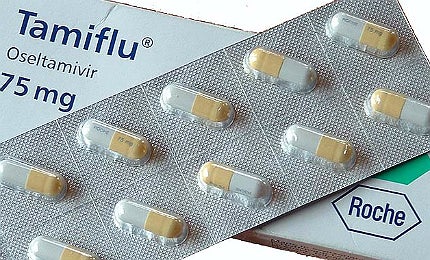

Novartis cancer drug patent request rejected by Indian court

Last month, a top court in India rejected Swiss drug maker Novartis‘s request for patent protection for its cancer drug Glivec.
The landmark decision from the Supreme Court is thought to be a benchmark for other Western drug companies seeking intellectual property rights in India and serve as a victory for local manufacturers of generic drugs.
In a press statement, Novartis said the court’s decision "discourages innovative drug discovery essential to advancing medical science for patients."
US president launches $100m brain research project

The US president awarded $100m of funding to researchers to intricately map the human brain in a bid to cure, and even prevent, brain disorders, such as Alzheimer’s disease, epilepsy and traumatic brain injury.
How well do you really know your competitors?
Access the most comprehensive Company Profiles on the market, powered by GlobalData. Save hours of research. Gain competitive edge.

Thank you!
Your download email will arrive shortly
Not ready to buy yet? Download a free sample
We are confident about the unique quality of our Company Profiles. However, we want you to make the most beneficial decision for your business, so we offer a free sample that you can download by submitting the below form
By GlobalDataSee Also:
Barack Obama revealed the new research initiative, Brain Research through Advancing Innovative Neurotechnologies (BRAIN), at the Whitehouse last month.
It will be funded with money from the president’s 2014 budget.
Controversial medicines law comes into force in El Salvador

A new law that ensures significant price cuts are made to pharmaceuticals sold in El Salvador came into force on 4 April.
Under the General Medicine Law, approved at the Legislative Assembly in February, prices for at least 6,200 medicines will be reduced by a minimum of 30%, and up to 60% for those most often prescribed, reports Prensa Latina.
El Salvador is currently considered one of the countries with the most expensive medication worldwide.
Roche provides access to Tamiflu data after three-year delay

Swiss drugmaker Roche announced it will provide researchers with access to all of its clinical study reports for its influenza drug Tamiflu (oseltamivir).
Roche lifecycle leader for Tamiflu Don MacLean emailed the Cochrane group, an internationally renowned healthcare and policy research body, on 2 April to propose the provision of data from 74 trials during the next few months, reports the British Medical Journal (BMJ).
The Cochrane group had asked for full clinical reports in 2009, but Roche only provided access to one part of ten Tamiflu studies.
First mutations of child leukaemia traced back to the womb

Scientists from the Institute of Cancer Research said they have tracked the first mutations of leukaemia back to the mother’s womb, which they believe could lead to a target for new cancer drugs.
The study, which was published in the scientific journal PNAS, sequenced and analysed the entire three billion letter genome of two pairs of identical twins with leukaemia to identify mutations driving the disease in the womb and post birth.
The twins had the most common form of leukaemia which affects children, acute lymphoblastic leukaemia (ALL), which is cancer of the white blood cells.
Objective way to measure pain discovered

Pain can be objectively measured in patients for the first time ever by examining scans of their brains, according to scientists at the University of Colorado Boulder.
Researchers said the findings could lead to the development of reliable methods to measure pain, allowing doctors to objectively understand the amount of pain a patient is suffering, instead of relying solely on their description.
The study, which was published in the New England Journal of Medicine, could also lead to new clues about how the brain generates different types of pain, as well as help generate methods to objectively measure anxiety, depression, anger and other emotional stress.
GSK accused of delaying Seroxat generics from entering UK market

The UK Office of Fair Trading (OFT) accused GlaxoSmithKline (GSK) of paying rivals to delay their cheaper generic versions of its anti-depression drug Seroxat from entering the UK market.
The OFT said GSK is guilty of market "abuse" for paying money to Alpharma, Generics UK and Norton Healthcare in order for them not to release their generic drugs in to the UK market, according to the BBC. GSK deny the allegations and say they acted within the law.
The pharmaceutical giant in a statement said: "In fact, these arrangements actually resulted in generic versions of paroxetine [Seroxat] entering the market before GSK’s patents had expired."
Takeda ordered to pay patient $6.5m over Actos drug cancer risk

Japanese pharmaceutical giant Takeda was ordered to pay $6.5m in damages to a Californian man after jurors found the company failed to provide the claimant and his doctors with adequate warnings about the bladder cancer risk from its Actos diabetes drugs.
In the court case, which is the first of 3,000 suits against Takeda regarding Actos’s bladder cancer risk, claimant Jack Cooper said Takeda failed to properly warn him and his doctors of the risk of cancer.
Cooper took the drug for more than four years before developing bladder cancer in 2011.
Related content
March’s top stories: child cured of HIV and AstraZeneca axes nearly 3,000 jobs
US doctors declared a breakthrough in the fight against aids by curing a baby of HIV, while French scientists said the infection could be ‘functionally cured’ with early treatment, while AstraZeneca announced it will axe nearly 3,000 jobs globally.
February’s top stories: Takeda anemia drug pulled, EU investigates Diane 35
The EU launches a review of acne drug Diane 35, Takeda pulls anemia drug Omontys in the US over fatal hypersensitivity and scientists prepare to explore the Arctic seabed for new antibiotics.




